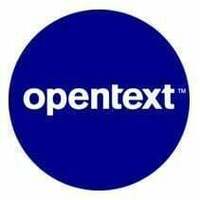GitHub is the best place to share code with friends, co-workers, classmates, and complete strangers. Over two million people use GitHub to build amazing things together.
Top DevOps Software Result from Version Control Hosting
Also listed in DevOps Platforms, Software Composition Analysis, Cloud Infrastructure Automation, Static Application Security Testing (SAST), Application Release Orchestration

GitHub has essentially become the 'operating system' for my development workflow. What I appreciate most is the seamless integration of GitHub Actions directly within the repository; it makes setting up CI/CD pipelines for my Node.js applications incredibly straightforward without needing external tools like Jenkins. The Pull Request interface is also best-in-class for code reviews the ability to leave line-specific comments and suggest changes directly in the UI significantly speeds up our team's collaboration. Plus, the vast ecosystem of GitHub Marketplace actions saves me hours of manual scripting for deployments to AWS or automated testing Review collected by and hosted on G2.com.
LaunchDarkly
LaunchDarkly's vision is to eliminate risk for developers and operations teams from the software development cycle. As companies transition to a world built on software, there
Top DevOps Software Result from Feature Management
Also listed in A/B Testing, Application Performance Monitoring (APM), Session Replay, Log Monitoring, Continuous Delivery

I like how easy it is to navigate the UI, and that it lets me group flags, rollouts, and other categorizable resources however I want. It can be as simple or as complex as I need, depending on what I’m trying to do.
The change request approval system has been the biggest good change that I've used. It saves a lot of time that would otherwise be spent on private DMs on Slack. Review collected by and hosted on G2.com.
Bitrise Mobile DevOps Platform
Bring back the joy of app development! Mobile Continuous Integration & Delivery for your whole team, with dozens of integrations for your favorite services.
Top DevOps Software Result from Continuous Delivery
Also listed in Continuous Integration, Build Automation, DevOps Platforms
We’ve had a great experience using Bitrise as our CI/CD platform. The portal is clean, intuitive, and very easy to navigate, even for teams that are new to mobile DevOps. Setting up pipelines for Android and iOS builds is straightforward, and the documentation is clear and well-structured. Review collected by and hosted on G2.com.
An open source web interface and source control platform based on Git.
Top DevOps Software Result from Version Control Hosting
Also listed in Secure Code Review, DevOps Platforms, Value Stream Management, Software Composition Analysis, Cloud Infrastructure Automation

GitLab is very user-friendly because of its clean and intuitive interface, especially the web editor that resembles VS Code and allows me to view, edit, comment, and commit code changes all in one screen without having to use multiple tools. Ease of implementation is also a huge plus because I can begin working immediately without having to install any software, which is very convenient when traveling or working on a mobile device. The need for customer support is minimal because the documentation is very clear and well-organized, and in most cases, it is more than enough to solve problems without having to contact customer support. The usage rate is very high because it is part of my daily routine for tasks such as collaboration, code reviews, and quick fixes. GitLab provides a whole array of functionalities such as repository management, CI/CD, issue tracking, and code editing, which makes it a very powerful all-in-one solution. GitLab also integrates very well with the existing development workflow and tools, which makes it easy for teams to adopt without having to make any significant changes. Review collected by and hosted on G2.com.
An enterprise-grade mobile DevOps platform that automates the build, test, and publish store of mobile apps for faster, efficient release cycle
Top DevOps Software Result from Continuous Integration
Also listed in Continuous Delivery, Build Automation, DevOps Platforms, Enterprise App Store

I use Appcircle as an end-to-end mobile CI/CD and DevOps platform. It helps manage build automation, code signing, testing, and distribution processes efficiently. I appreciate how Appcircle streamlines our release cycles, reduces manual workload, and gives better control over our delivery pipeline, significantly improving our development workflow and productivity. The flexibility and easy customization allow us to tailor workflows to our needs. I truly appreciate the responsive and supportive team who are always solution-oriented and invested in our success. The integration with version control systems ensures a seamless connection between development, testing, and release, making our workflow efficient and coordinated. The initial setup was straightforward and easy, thanks to the intuitive interface. I also value the continuous improvements from the team. Review collected by and hosted on G2.com.
Copado DevOps
Copado DevOps weaves security best practices into agile planning, CI/CD and testing to help you safely accelerate software delivery.
Top DevOps Software Result from DevOps Platforms
Also listed in Continuous Integration, Continuous Delivery
Automatic integrations help reduce the time needed for installations, which brings greater reliability and interest to the business and allows for numerous improvements. Review collected by and hosted on G2.com.
Deploy your websites or apps directly from your repository to servers or the cloud.
Top DevOps Software Result from Continuous Delivery
I really like DeployHQ's web app, it's really great. Their support has been amazing, and they even made some API changes I requested within just a couple of days. DeployHQ has been amazing for our use case. Review collected by and hosted on G2.com.
Redgate Flyway
Flyway extends DevOps to your databases to accelerate software delivery and ensure quality code. It increases the reliability of deployments by versioning your database.
Top DevOps Software Result from Version Control Software
Also listed in Database DevOps Software, Continuous Delivery

Flyway is great because it uses plain SQL scripts for versioning, making it incredibly easy for developers to learn and adopt.
It also ensures environment consistency by using a schema history table to track and automate migrations across your entire CI/CD pipeline. Review collected by and hosted on G2.com.
Semaphore is a hosted continuous integration and deployment service for open source and private projects.
Top DevOps Software Result from Continuous Integration
Also listed in DevOps Platforms, Automation Testing, Continuous Delivery

Semaphore is fast, reliable, and easy to work with. Its CI configuration is powerful while still staying readable and straightforward. Overall, it feels like a tool built for engineers, supported by people who genuinely care about helping teams succeed. Review collected by and hosted on G2.com.
Vercel provides cloud deployment solutions to individuals, teams and organizations.
Top DevOps Software Result from Continuous Delivery
Also listed in WebOps Platforms, Content Delivery Network (CDN), Cloud Platform as a Service (PaaS)

Vercel makes deploying and running modern web apps extremely simple and fast. We use it to power one iGlowly project — a patient-first AI assistant built for aesthetic clinics — where we deploy frontend scripts on Vercel. The experience has been very smooth. Deployments are easy and extremely fast, performance is excellent out of the box, and everything from previews to production feels reliable and well thought out. It lets us focus on product and UX instead of infrastructure. Easy to learn. Review collected by and hosted on G2.com.
Copado Essentials
Our engineers spent years mastering their craft, bringing together decades of expertise in creating products that continue to exceed our customers' expectations. When you cho
Top DevOps Software Result from Continuous Delivery
Also listed in Continuous Integration
What I like most about Copado Essentials is how it simplifies and standardizes the Salesforce DevOps process without introducing unnecessary complexity. It offers an easy-to-use, Salesforce-native way to manage user stories, version control, and deployments, which helps reduce manual effort and lower deployment risk. The guided promotion and validation steps, combined with automated testing and rollback support, also help ensure better deployment quality and greater confidence during releases. Overall, Copado Essentials strengthens collaboration between admins and developers while enabling faster, more reliable releases. Review collected by and hosted on G2.com.
Rev-Trac is engineered to modernize how SAP change is managed across complex SAP landscapes and can support SAP ECC, S/4HANA, BTP and other Cloud applications, accelerating de
Top DevOps Software Result from DevOps Platforms
Also listed in Application Release Orchestration, Continuous Delivery, Continuous Integration, SAP Store
RevTrac enforces change management process. It automated approvals and packaging dependencies which was not possible in earlier STMS process. It has role-based control and release team can decide which changes can be allowed in which environment. It enhances visibility and audit trail of changes. Parallel development and OOps conflicts/overwrite and overtakes can be caught earlier in the cycle.
Customer support is really good. The team jumps on to the request quickly and works with the technical team.
Easy to use for someone like a release manager. Review collected by and hosted on G2.com.
Prodly DevOps
Prodly DevOps automates low-code application development empowering non-developers to configure, test and deploy Salesforce low code applications. Customers have found increas
Top DevOps Software Result from DevOps Platforms
Also listed in Cloud Migration, Continuous Delivery, Continuous Integration, Salesforce AppExchange Apps

I use Prodly DevOps because it makes Salesforce change management and deployments much faster and less error-prone. Instead of spending hours manually migrating configuration data or worrying about breaking something in production, Prodly automates the process and ensures accuracy. It helps me maintain compliance, improve release speed, and reduce risk during deployments. Overall, it saves time and gives me confidence that changes will go smoothly. The initial setup was straightforward and well-documented, making it easy to get started quickly. It's reliable, saves time, and makes deployments much easier. Review collected by and hosted on G2.com.
OpenText Deployment Automation 25.2
Deployment Automation (formerly Serena Deployment Automation) supports continuous delivery and production deployments by automating the deployment pipeline, reducing cycle tim
Top DevOps Software Result from Continuous Delivery
Also listed in Application Release Orchestration

User friendly and easy to use. It helped a lot in automation. Review collected by and hosted on G2.com.
Release Management software for Salesforce
Top DevOps Software Result from DevOps Platforms
Also listed in SaaS Backup, Continuous Delivery, Continuous Integration

I appreciate Flosum for its incredibly comprehensive DevOps solution which, unlike Salesforce's DevOps Center, offers functionalities such as rollback, code versioning, and code quality analysis, which we greatly missed before. The ability to view the change history is especially useful for development control and security. Additionally, the integrated backup solution is a valuable feature, providing an additional layer of security for our data in Salesforce. The initial transition was very smooth, evidenced by the quick integration of our teams, which reinforces the platform's efficiency and usability. This comprehensive set of features was decisive in our migration from other solutions, and I did not hesitate to recommend it to other colleagues, given the positive impact it has had on our operations. Review collected by and hosted on G2.com.
Gearset DevOps
Gearset is the most trusted DevOps platform with a full suite of powerful solutions for every team developing on Salesforce. Deploy: Achieve fast, reliable metadata and data d
Top DevOps Software Result from DevOps Platforms
Also listed in Disaster Recovery, SaaS Backup, Static Code Analysis, Continuous Delivery, Continuous Integration
Gearset simplifies the pipeline from development to production by establishing clear guidelines and best practices for the team. As a manager, it’s easy for me to review how efficiently my team is operating and to see exactly where features currently sit in the pipeline. From a SOX perspective, I can also quickly export evidence that provides proof of testing and separation of duties. Salesforce DevOps has always been a complicated process, and Gearset has made it much easier to understand and manage with confidence. Review collected by and hosted on G2.com.
Google Cloud Build
Google Container Builder is designed to enable fast, consistent, reliable builds on Google Cloud Platform.
Top DevOps Software Result from Continuous Delivery
Also listed in Container Orchestration, Build Automation
With Google Cloud Build I don't need to manage servers, it's configuration and maintenance. It is easy to deploy and takes no time at all. Traditionally to deploy my code I had to create a server install dependencies, configure network and what not, but with Google Cloud Build I focus on my code while it handles all the deployment related things. Review collected by and hosted on G2.com.
Jenkins is an application that monitors executions of repeated jobs, such as building a software project or jobs run by cron.
Top DevOps Software Result from Continuous Integration
Also listed in DevOps Platforms, Continuous Delivery, Build Automation, AWS Marketplace

Jenkins mostly just keeps the CI lights on for our UI automation, which is honestly what I need most days. We host it on a Linux server and it’s rock-solid: pipelines fire when they should, and the connection to our Selenium Grid on remote Windows 11 machines is seamless enough that I barely think about it. I kick off a job, agents spin up, tests run, reports land—done, no drama. The plugin ecosystem is a big win too: test reporters, HTML publisher, Slack and email notifications, credentials bindings, all the usual suspects. That makes it easy to wire up a pipeline that matches our workflow without bolting on a bunch of custom glue. Once the Jenkinsfile is in place, everything feels predictable run after run; the logs are clear enough, and failures usually point to the right stage so I can fix things and move on.
Day-to-day usage is pretty straightforward. We schedule weekly runs across different environments, pass parameters for browser or env, and the matrix job handles it cleanly without me babysitting every combo. Branch builds are easy, artifacts get archived, and test results show up in the job with trends so we can spot regressions fast instead of guessing. Git integration is simple enough too: webhooks trigger CI, the job picks up the latest commit, and there are no manual steps or copy-paste. Labels help isolate jobs so Windows grid work stays separate from other tasks, and the Linux master stays calm even when the queue gets busy. Folders and role-based access provide decent guardrails, secrets live in the credentials store so people don’t stash tokens in scripts, and shared library functions keep our pipeline steps consistent across repos, which cuts down the chaos a lot.
Support and docs are decent, and the community answers usually get me unstuck when I hit an odd edge case—often after a plugin update. It’s not perfect: plugins can be picky, a node will go offline now and then, and sometimes a flaky test makes a stage look worse than it is. Still, the feedback loop is fast and reliable. The net result is simple: faster iteration, fewer setup headaches, and cleaner commits that flow right into our ADO repo and CI without me babysitting a bunch of steps. It keeps the work organized and predictable, which is exactly what I need for UI automation, and it saves me a lot of little minutes across the week so I can focus on fixing issues instead of wrangling the pipeline. Review collected by and hosted on G2.com.
Code, build and deploy with no effort
Top DevOps Software Result from Continuous Delivery
Also listed in Version Control Hosting, Continuous Integration, DevOps Platforms

From the very beginning, Buddy distinguishes itself with its clean and intuitive interface, which is something users especially comment on. The visual pipeline builder is so intuitive, in fact, that, again assuming no experience with automating deployment workflows, it’s very much like using a drag-and-drop tool rather than complex automation scripting. Review collected by and hosted on G2.com.
Red Hat Ansible Automation Platform
Red Hat Ansible Automation Platform is a simple way to automate apps and infrastructure. Application Deployment + Configuration Management + Continuous Delivery.
Top DevOps Software Result from Configuration Management
Also listed in DevOps Platforms, Cloud Infrastructure Automation, Network Automation Tools, Application Release Orchestration, Patch Management

What I appreciate most is how Ansible Automation Platform gives us a consistent way to automate tasks across differnet environments. Instead of everyone writing their own scripts, we can have a centralized, controlled approach that keeps things uniform and reduces errors.
Cloud services, on‑prem servers, or network devices, Ansible connects to everything without needing any agents. This flexibility has made it much easier to scale automation across the organization stacks.
Also, its write once-reuse anywhere motoo help us reuse across multiple projects or environments. This not only speeds up deployments but also ensures the same process runs the same way every time, which has noticeably improved our operational stability. Review collected by and hosted on G2.com.



















